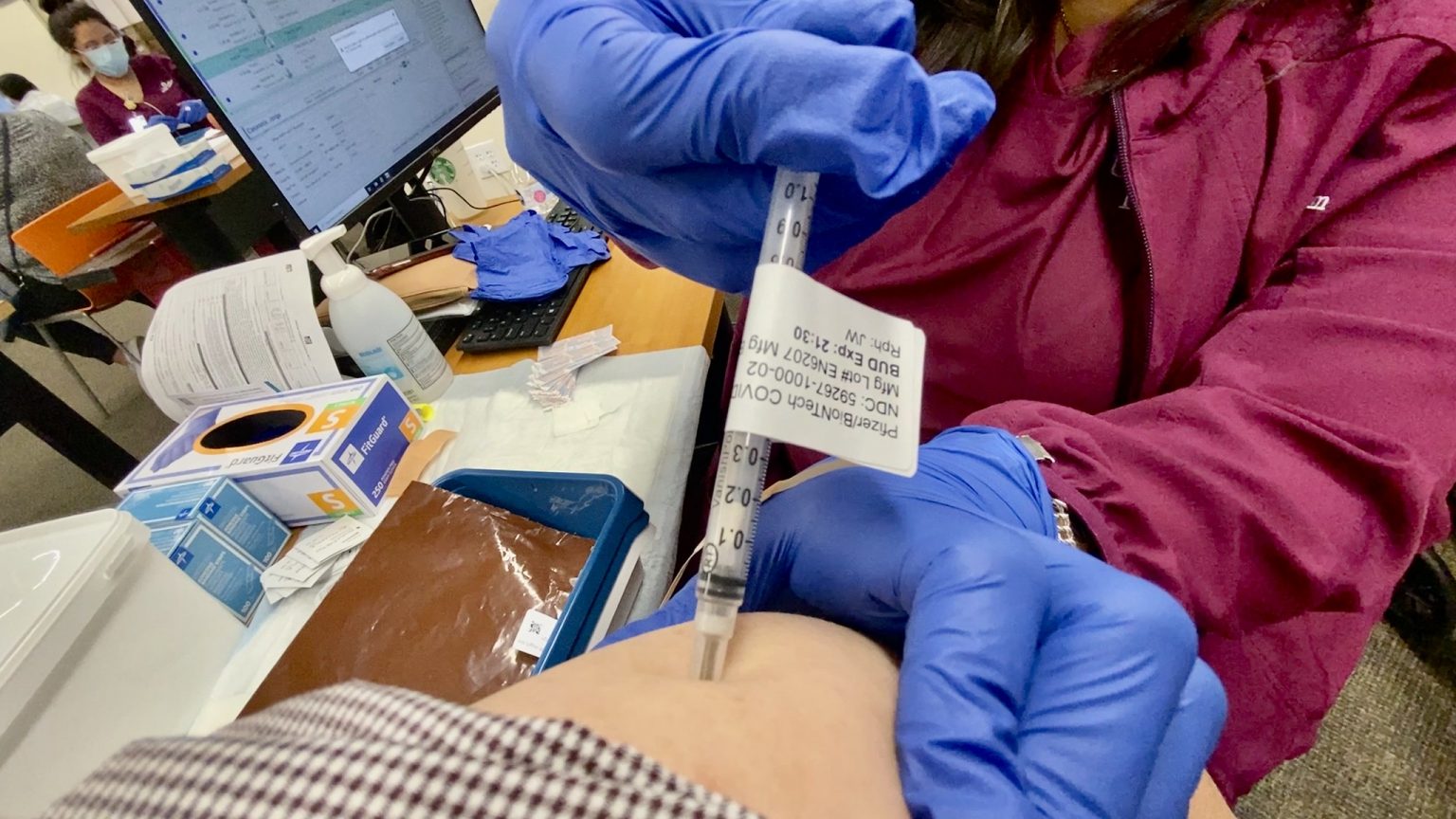New COVID-19 Policies for Diocesan Staff and Events

Throughout the COVID-19 pandemic, the Episcopal Diocese of San Diego has been committed to loving God and our neighbors through public health policies that help ensure healthy practices within our diocese. Now that the Pfizer vaccination has been fully approved by the FDA, EDSD’s Executive Council met on Saturday, August 28, 2021, and approved a new COVID-19 policy. This policy applies to employees of the Episcopal Diocese of San Diego, and to diocesan events such as clergy conference, Diocesan Convention, and the Good News Festival, until further notice. The diocese is not issuing directives for employees of congregations or for congregational events, but we recommend these policies for your Vestry or Bishop’s Committee to consider adopting or adapting for your congregation.
Please note that there are certain requirements for staff to document their vaccination status in California. These policies are detailed for your information at the end of this message.
Policies for Diocesan Employees
Employees who are members of the staff of the Episcopal Diocese of San Diego will be required to be fully vaccinated against the Covid-19 virus and to present proof of vaccination to our Chief Financial Officer, The Rev. Canon Jeff Martinhauk. We expect diocesan employees to receive their first shot by September 18, 2021, and their second by October 9, 2021.
If an employee is not able to be vaccinated for medical reasons, they may apply for accommodations under the Americans with Disabilities act. Church work requires close, interpersonal contact and vaccination is required for many positions in the church. However, in the event of a medical disability the Diocese will begin the interactive accommodation process to determine whether accommodations can be safely granted without causing the Diocese undue hardship and without posing a direct threat to the health and safety of others. If an undue hardship would result from accommodating an unvaccinated employee to protect the safety of others, the terms of employment may be modified, up to and including termination. While the employer works through the accommodation process, employees requesting accommodations will be expected to wear a KN95 or N95 mask at all times in the office or in work-related meetings, and may be asked to work remotely.
No unvaccinated employee shall lead worship, music, or children’s ministries or attend in-person diocesan events; including but not limited to Diocesan Convention, in-person formation events, or the Good News Festival.
As a church, we do not intend to offer a religious exemption from the vaccine requirement.
COVID-19 Protocols for Diocesan Events
For diocesan events such as clergy conference, Diocesan Convention, and the Good News Festival, all in-person attendees will be required to present proof of vaccination. Masking for all attendees except people who are currently speaking will be required. All diocesan events will be offered in a hybrid fashion, so that people can join from home and (in the case of Diocesan Convention) participate fully in voting and the opportunity to speak. Children under twelve (12) who are not yet eligible to be vaccinated are exempt from presenting proof of vaccination, and children under two (2) are exempt from wearing a mask.
Cal OSHA COVID-19 Requirements
COVID-19 brought a range of new employment laws at the Federal, State, and local level. Check with your local HR resources or diocesan CFO Jeff Martinhauk (jmartinhauk@edsd.org) for specific questions. Some of the most important employer requirements from the State of California are summarized below:
- Masking in the workplace is required while indoors by California law unless proof of vaccination is on file with the employer.
- Vaccinated employees must be allowed to wear a mask at all times (including during worship) without fear of retaliation from employers. Unvaccinated employees are required to wear a mask at all times.
- When the employer knows, or should have known, that there is a COVID-19 case in the workplace, employers must identify the last day and time the COVID-19 case was at the worksite, determine who may have had “close contact” and provide written notice of the potential exposure within one business day to all employees and independent contractors at the worksite during the “exposure period.”
- The written notice must include the employer’s disinfection plan and include information regarding Federal, State, and local COVID-19 related benefits.
- Contact the diocesan office if you need assistance.
- “Close contact” is defined as being within six feet of a COVID-19 case for a cumulative total of 15 minutes or more in any 24 hour period during the exposure period.
- The “exposure period” is two days before symptoms developed until 10 days after symptoms appeared and the employee has been fever-free for 24 hours. For asymptomatic cases, it means from two days before until ten days after the specimen for the first positive test was collected.
- Three or more positive cases in a two-week period are considered an “outbreak” and must be reported to the local health agency.
- Other requirements when an employee tests positive for COVID or has exposure:
-
- Employer-paid leave for an exclusion quarantine period (this is not sick or vacation leave)
-
- Employer-paid COVID testing for employees with exposure, immediately after exposure and one week later
-
- Possible requirement to notify Workers Comp carrier (for employers with five or more employees)
This list is not exhaustive. See also What Employers Need to Know about the June 18 Standards and Cal OSHA COVID-19 Prevention Emergency Temporary Standards
We offer this diocesan policy with the expectation that many congregations will wish to adapt it for their use. We are happy to answer questions related to the policy, and ask you to direct your questions to The Rev. Canon Jeff Martinhauk, JMartinhauk@edsd.org.
As always, we ask your prayers for those who are suffering from Covid-19, for the health care workers and family members who are risking their own health to care for others, and for an end to this pandemic.